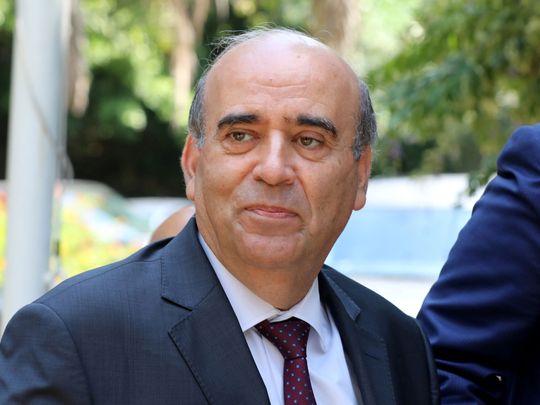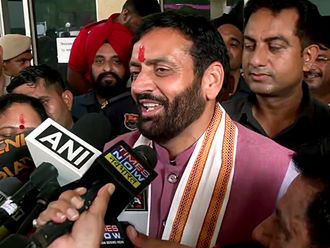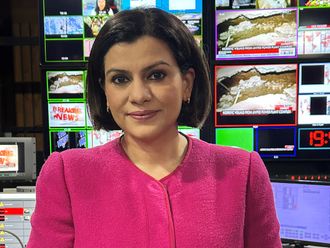
These past few days have witnessed an unprecedented condemnation by Saudi Arabia at the events in Gaza and huge sympathy for the civilian victims of the incessant air strikes conducted against them, many who were bombed for no reason other than just for being there. The solidarity with the people of Palestine was overwhelming.
But in the midst of this storm of emotions came another, one closer to home. This one was not from an enemy, but one perceived as a friend. Speaking on Al-Hurra Television, Lebanon’s foreign minister Charbel Wehbe made some derogatory remarks against the Gulf states on live TV. His statement was a response to a comment by a Saudi guest on the show who had criticised Lebanon’s political stance in recent years and one that seemed to be leaning to the whims and influence of the Hezbollah, an organisation with ties to Iran. Rather than engage in a proper debate, Wehbe chose to walk off the set but not before adding one final insult and offensive word.
The storm that was triggered by Wehbe’s diplomatic faux pas created fury all over the Gulf as governments and people of the region took those offensive statements and words as personal. The Saudis condemned the statements that “bashed the Kingdom and its people, the shameful insults to the Kingdom, its people, and the Gulf Cooperation Council countries.”
The Saudi Foreign Ministry said that Wehbe’s words were “inconsistent with the simplest diplomatic norms and did not reflect the relations between the two brotherly peoples.” They also formally protested by summoning the Lebanese ambassador to the kingdom “to express the Kingdom’s rejection and condemnation of the Lebanese foreign minister’s insults, declaring them as unacceptable.”
A similar condemnation and action by governments in the region took place with the UAE, Kuwait, Bahrain, and others condemning the non-factual statements and the derogatory comments by the Foreign Minister of an Arab country that has long relied on financial donations form the Gulf states for its very existence. The Gulf Cooperation Council also requested an official apology from the Lebanese minister, emphasising his rejection and denunciation of what these statements contained.
The General Secretary of the League of Arab States also expressed his deep regret over what the Lebanese Foreign Minister had alleged against Gulf states, especially against Saudi Arabia, and described these statements as far from diplomatic propriety. He added, “these statements help to strain Lebanon-Gulf relations rather than correcting their course as needed.”
Saudi Arabia’s patience with Lebanon has been running thin in recent years. Just last month, the Saudi government suspended all fruit and vegetable imports from Lebanon, as the shipments were being used for drug smuggling. The Lebanese government was accused of inaction.
The country has been facing its worst economic crisis since the 1975-1990 civil war.
But it was the people of these countries who rose as one to criticise one and all things being Lebanese. “Enough of Lebanon,” said one Saudi. “What do we get? A stab in the back!”
Another one claimed that many of the ills in the country were related to Lebanese enterprises that were aimed at destabilising our society. “Look at the drugs that are being smuggled from Lebanon. Do you think it’s all about money alone? No, they want to destroy our cultures.”
A Saudi lady who had previous ties to Lebanon said, “It pains me to say it but Lebanon today has failed politicians and a bleak outlook. This has caused some of their people to indulge in crooked means to make a living, even if it means taking advantage of others. Some unscrupulous elements have been promoting money laundering in conjunction with some unsavory characters here, and taking out illegally procured money. Just look at the recent high-profile arrests and see how many people have been apprehended.”
From the authorities to businessmen, from students to homemakers, none had any tolerance to the storm created by Charbel Wehbe, who soon tendered his resignation saying he did not mean to offend “brotherly Arab countries”. But the damage was done. Lebanon has quickly sunk several rungs down the ladder in public opinion, and it will take a long time before angry emotion will subside.
— Tariq A. Al Maeena is a Saudi sociopolitical commentator. He lives in Jeddah, Saudi Arabia. Twitter: @talmaeena











